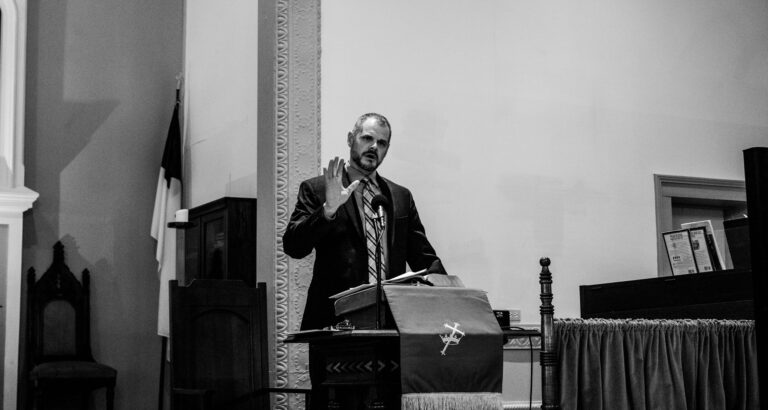Hebrews 11 is the chapter that summarizes so many demonstrations of faith in the Bible. In some ways, it is amazing that the author of Hebrews wrote such a short compilation since evidence of faith is seen throughout Scripture. Of course, the author did write:
“And what more shall I say? For time would fail me to tell of Gideon, Barak, Samson, Jephthah, of David and Samuel and the prophets…” (verse 32).
One might even ask, “What about Job?!” Nevertheless, God’s people indeed “walk by faith, not by sight,” (2 Corinthians 5:7). And we cannot walk by feelings either, although the presence of feelings and emotions about the Lord are not to be dismissed as inappropriate in the Christian life. As we trusted Christ for our salvation from sin and hell, so we must continue to trust the Lord through our entire lives.
“This is the victory that has overcome the world—our faith” (1 John 5:4).
The disciple of Christ learns to trust God though the good and the bad, during the blessings and the trials. In his prayer life, the disciple is able to express desires and hopes and to cast his every care and worry upon Him because He cares for us (1 Peter 5:7). Jesus exhorts the burdened in His day and assures them of His help when He says,
“Come to me, all who labor and are heavy laden, and I will give you rest. 29 Take my yoke upon you, and learn from me, for I am gentle and lowly in heart, and you will find rest for your souls. 30 For my yoke is easy, and my burden is light” (Matthew 11:28-30).
As growing disciples, we gradually learn that God has a plan for us and that He also has the power to provide for us. And He answers prayer. We can give Him our worries (Luke 12:22-26) and our future (Matthew 6:34) as He knows every need of our lives (Matthew 6:25-34). The disciple lives a life of faith even when the feelings and the sense of the presence of God is missing. Habakkuk learned this lesson as Babylon hovered over Israel and the threat of losing everything loomed large. The Lord told him, “The righteous shall live by his faith” (Habakkuk 2:4). Habakkuk finally reached a point of resolution, recognizing that even if he were to lose everything, He would still have God and he could rejoice in that assurance:
16 I hear, and my body trembles; my lips quiver at the sound; rottenness enters into my bones; my legs tremble beneath me. Yet I will quietly wait for the day of trouble to come upon people who invade us. 17 Though the fig tree should not blossom, nor fruit be on the vines, the produce of the olive fail and the fields yield no food, the flock be cut off from the fold and there be no herd in the stalls, 18 yet I will rejoice in the Lord; I will take joy in the God of my salvation. 19 God, the Lord, is my strength; he makes my feet like the deer’s; he makes me tread on my high places. (Habakkuk 3:16-19)
This is the walk of faith: trusting God when all that you have is God.
I still recall working on a construction site in west Fort Lauderdale, Florida as a new Christian back in the summer of 1973. There was a Hispanic worker named Louie serving on the same site with a crew separate from ours. But he found out that a lot of our crew were Christians, as we were serving together during the summer with a Navigator ministry summer beach project. He was excited to know this, since he had just recently become a Christian. The joy in his salvation was evident and although his English was somewhat limited, he and I could both talk together about our newfound faith. But one day Louie came to work and it was obvious that he was “in the dumps” emotionally. His joy and happiness were missing – he was a young man who wore his heart on his sleeve. When I asked him what was wrong, in his simple English he replied, “God seems gone. I don’t feel Him with me.” I had been there before, so I explained to Louie that sometimes God intentionally removes His presence (or a sense of His presence) to test us and to strengthen our faith. He wants to see if we love Him or His blessings more. Louis seemed to understand and in time he was back to his “old/new” self. The Westminster Confession of Faith states that sometimes
“God withdraws the light of His countenance”; yet believers are “never truly destitute of that seed of God” in their lives (18:4).
This is what it means to walk by faith, clinging to Him and trusting Him even when the darkness appears to be prevailing!



